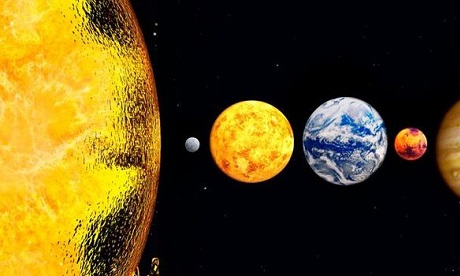The possible discovery of life on Venus has prompted the Vatican astronomer to caution against getting too speculative about it.
If anything living exists on the planet, it doesn’t change the calculus in terms of God’s relationship with humanity, Brother Guy Consolmagno SJ says.
“Life on another planet is no different than the existence of other life forms here on Earth.”
Both Venus, Earth “and every star we can see in our telescopes, are all part of the same universe made by the same God. For that matter, the existence of [other] human beings does not mean that God does not love me,” the Director of the Vatican Observatory says.
“God loves all of us, individually, uniquely, completely. He can do that because He’s God… that’s what it means to be infinite.”
Consolmagno says it’s a “good thing, perhaps, for something like this to remind us humans to stop making God smaller than He really is.”
His comments came after a group of astronomers released a set of papers claiming to have detected the chemical phosphine in Venus’s atmosphere.
Through various analyses, the astronomers determined that a living organism was the only explanation for the source of the chemical.
Some researchers dispute the argument, as there are no samples or specimens of Venusian microbes. They say the the phosphine could be the result of an unexplained atmospheric or geologic process.
The Vatican astronomer says phosphine is a gas containing one atom of phosphorus and three hydrogen atoms, and its distinctive spectrum,“makes it relatively easy to detect in modern microwave telescopes.”
He says what is intriguing about finding life on Venus is that “while it can be stable in an atmosphere like Jupiter’s, which is rich in hydrogen, on Earth or Venus – with its acidic clouds – it should not survive very long.”
“The fact that it can be seen in the Venus clouds tells us that it is not some gas that has been around since the formation of the planet, but rather something that must be being produced…somehow…as fast as the acid clouds can destroy it. Hence, possible microbes. Maybe.”
Given the high temperatures on Venus, rising to around 880 degrees Fahrenheit, nothing can live on its surface, Consolmagno said, noting that any microbes where the phosphine was found would be in the clouds, where temperatures tend to be far cooler.
“It’s intriguing, and deserves further study before we start believing any speculations about it,” he says.
Source
- Crux Now
- Image: Daily Express
News category: World.




